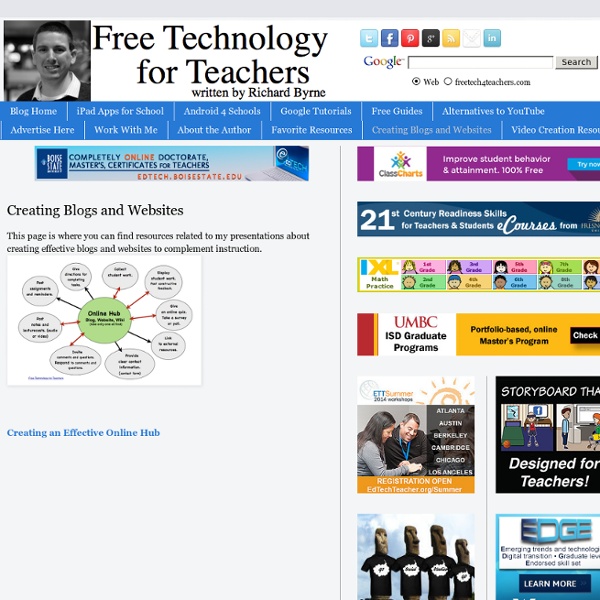Creating Blogs and Websites

Ipads In The Classroom – Christmas Reflection - Keith Rispin » Keith Rispin
A student asked me last week if I was going to “do the iPad thing next year” and strangely I said yes without hesitation. You would think after all the frustrations I have had and all the bellyaching I have done over this little digital device, I would have at least gave him a five second “ummmmmm” before I answered. When I think about it though, it is a no brainer. I have been given the opportunity by the powers that be, to break new ground in the brave new world of education. Plus, I love technology! As much as I would love to say that the iPad experience has been GREAT! Kidding! We did do a number of good things this term and I will share at some point, I promise but it seems that people want to know about our difficulties so they can steer clear of them or fix them. With all that said, in keeping with the pointing out the negatives theme, here are my 3 biggest issues up until Christmas Break. This wasn’t necessarily a bad thing and we actually learned something from it: Cheers!
Top 10 Blogging Dos and Don’ts
by Guest Blogger If you are a beginning blogger or are a seasoned blogging vet, you may occasionally need a blogging tip to help you create content or to get you back on track. However, if you are a new blogger you might need a lot more help. Regardless of how long you have been blogging, the following dos and don’ts can help you to be a bigger blogging success. DO post regularly. This blogging tip may be old news, but if you are a new blogger you may not really know what regularly means. This article is provided by Kevin Moor who writes for different sites, which inter alias are working to find perfect uninstaller. About the author: This post was contributed by a guest author or interviewee.
Just Trying to be Better Than Yesterday | …how difficult can that be?
Related:
Related:



